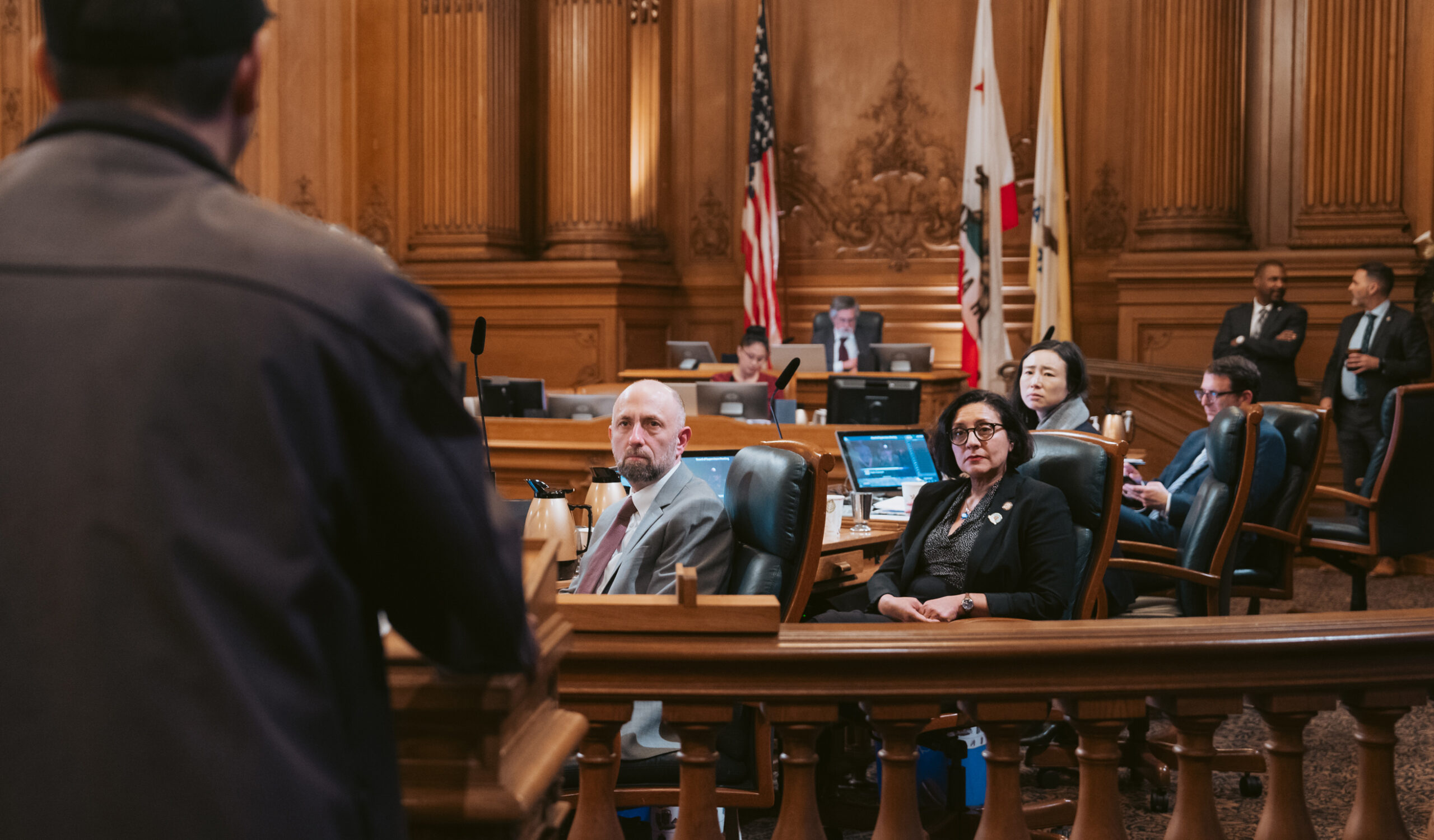Recovery is the major theme of Tuesday’s Board of Supervisors meeting, as members look to settle accounts over costs from Covid and the drug overdose crisis, while welcoming plans to revive San Francisco’s commercial corridors.
As always, wonks can survey the whole kit and caboodle in this week’s agenda.
Pandemic, Drug Epidemic Damages
For San Francisco, 2023 is looking like the year that bills come due—from the pandemic, the epidemic of opioid abuse and the hollowing-out of Downtown.
Three settlement items on Tuesday’s agenda help tell the story of the past few years.
The Board is set to approve a $3.4 million payout to the owners of Hotel Vertigo on Sutter Street, one of a number of hotels the city leased as shelter for people living on the street during the pandemic.
Hotel Vertigo was one of a number of hotels to file claims with the city for “significant damage to real and personal property” while leased for the Shelter-in-Place Hotel program, which ran from April 2020 through 2022. The board already approved a payout of $2.9 million to owners of the Tilden Hotel last February and $5.3 million to owners of the Hotel Union Square last December, for similar claims.
Meanwhile, the board is also expected to approve two other settlements in an ongoing series of lawsuits over negligence by companies that contributed to the opioid abuse epidemic. This time, though, it’s the city that gets paid.
Walmart has agreed to pay San Francisco up to $6.8 million over the next six years, and CVS Pharmacy has committed to as much as $12 million over the next 10 years.
City Attorney David Chiu won a watershed lawsuit against Walgreens last August over the company’s failure to ensure that opioid prescriptions were legitimate. He also brought cases against drug makers Allergan and Teva, which yielded $54 million in payouts.
San Francisco’s complex opioid litigation, which seeks restitution that could help pay for programs to abate the drug abuse crisis, is just one front in a massive effort from state and local governments across the country.
One program that proceeds won’t be able to fund, according to Chiu’s office, is safe consumption sites. Expect some members of the board to reiterate their frustration over that finding during the vote.
Casting Off the Phoenix: First Steps to a New Downtown
Mayor London Breed and Board President Aaron Peskin announced new legislation last week that will expedite permit processes for Downtown and Union Square, as well as clarify processes for converting empty office buildings into housing.
That bill will likely be formally introduced during roll call on Tuesday, and then be referred for review by the Planning and Building Inspection Commissions before final approval by the board.
The bill is just one of a number of legislative measures aimed at rebuilding Downtown. A business tax incentive package, which Breed announced during her State of the City address, was formally placed on the docket March 14.
The package, co-sponsored by District 4 Supervisor Joel Engardio, would freeze taxes for certain businesses through 2024, and offer a tax credit to new businesses opening in the city through 2027.
Whether it’s from new businesses or litigation, City Hall is ramping up its quest for new revenue. Given that the city faces a growing deficit now projected to approach $300 million for the next fiscal year, it couldn’t come at a better time.
Resolved: We Like These Bills
The Board is also set to adopt a slew of resolutions addressing policy questions of the day, such as standing up for trans youth. Other resolutions deal with supporting state bills, including:
- A pilot program for enforcement of speed laws via traffic cameras. San Francisco would be one of six cities in the program, aimed at getting drivers to slow down. Vehicle speeds over 20 miles per hour are a big factor in the city’s rising traffic deaths.
- A bill from Assemblymember and former District 6 Supervisor Matt Haney mandating minimum staffing and other requirements for emergency mental health and addiction crisis response by acute care facilities.
- Legislation to require on-board human safety operators for autonomous trucks and buses. Supervisors remain skeptical about robocars generally, given recent high-profile traffic incidents and what labor groups see as a threat to jobs.
